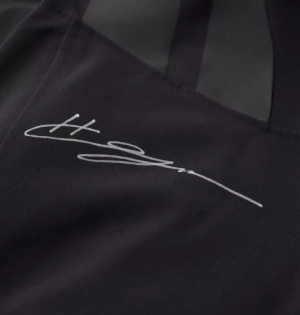Would the success of 'Star Wars: The Force Awakens' forever ruin George Lucas' reputation?
None of George Lucas' filmmaker friends thought he should make "Star Wars."
"They said, 'George you should be making more of an artistic statement,'" Lucas told The New Yorker in 1997. "People said I should have made 'Apocalypse Now' ... and not 'Star Wars.' They said I should be doing movies like 'Taxi Driver.'"
Many "Star Wars" fans believe Francis Ford Coppola, et al, should have given Lucas the same advice -- more forcefully -- when he decided to do the "Star Wars" prequels.
Because a long time ago (and not in a galaxy far, far away), Lucas was considered a serious writer-director. His first film, 1971's dystopic "THX 1138," had a cult following long before anyone had ever heard of a Jedi knight. Roger Ebert called Lucas' second movie, 1973's "American Graffiti," "not only a great movie but a brilliant work of historical fiction; no sociological treatise could duplicate the movie's success in remembering exactly how it was to be alive at that cultural instant."
Then in 1977 came "Star Wars," which received even more critical acclaim than "Graffiti." More important: it busted box-office records and remade both popular culture and Hollywood culture. Two hugely popular sequels, "The Empire Strikes Back" and "Return of the Jedi," soon followed.
Lucas has never been the same since. Giving up his one-time ambition to make small, personal movies, he became obsessed with what he calls "popcorn pictures" and then with digital special effects. Though a prolific producer, he didn't direct another movie after "Star Wars" for more than 20 years -- until he returned to his space saga.
In the mid-1990s, he warmed up for his return to directing by diddling with the old "Star Wars" movies, angering fans by changing their look and "feel" and altering an iconic scene that establishes the roguish Han Solo's character. "There will only be one," Lucas said when asked which version of the trilogy he thought the next generation of fans will watch. "And it won't be what I would call the 'rough cut.' It'll be the 'final cut.' The other one will be some sort of interesting artifact that people will look at and say, 'There was an earlier draft of this.'"
Then, from 1999 to 2005, Lucas made entirely new "Star Wars" movies: the three prequels, "The Phantom Menace," "Attack of the Clones" and "Revenge of the Sith."
These movies, unlike the first trilogy, mostly have not been well received by critics or even hard-core fans. There was the Jar-Jar Binks embarrassment. There was the plot, such as it was, that revolved around the Trade Federation. And the digital effects that made the movies look like they were populated by video-game characters rather than living creatures. The consensus opinion was that Lucas had become so immersed in his own creation that he had lost all perspective.
One of the reasons the inwardly focused Lucas didn't direct for so long is that he knew he was bad with actors, famously offering one of only two suggestions whenever starting up another take: "OK, same thing, only better" and "faster, more intense." This lack of connection with other humans, along with the awkward dialogue the actors had to cough out in front of green screens, became a serious issue with the prequels. No flesh-and-blood actor, not even Ewan McGregor, gives a particularly memorable performance in the second trilogy. Hayden Christensen and Natalie Portman especially suffered.
"Let's face it: the love story between Anakin and Queen Amidala was painful," wrote Hitfix's Chris Eggertsen. "How painful? People actually had to laugh to keep from crying."
The entertainment website Hitfix has returned to this subject often, writing earlier this year: "Did you like the 'Star Wars' prequels? No? Well join the club, the club being basically all of America. But never fear, because JJ Abrams is here to save the franchise from George Lucas, who once cared about something other than making piles and piles of money (we think).
Hitfix, needless to say, is far from alone in this stance.
"Star Wars Episodes I-III are a veritable treasure trove of poor decision-making," Robbie Boland wrote for IGN Entertainment last year. He added: "Now that J.J. Abrams is at the helm for Episode VII, can't we just forget Jar Jar, midi-chlorians and all the rest?"
Are you noticing a trend here? J.J. Abrams, the talented director of the forthcoming "Star Wars: The Force Awakens" and one of the men behind the worst series ending in TV history (that would be for the otherwise smart and engrossing "Lost"), has been elevated by "Star Wars" fans into a savior, a true artist far above the crass and juvenile Lucas.
Fast Company's Co.Design blog even geeked out about the redesigned lightsaber in the first "Force Awakens" trailer (watch below), calling it the tool of "a bloodthirsty berserker" and heralding it as a brilliant example of "J.J. Abram's story-driven approach to the 'Star Wars' universe." Continues Co.Design:
"After all of the silly lightsaber ballet of the prequels, it opens up a whole new dynamic, and immediately differentiates the character in the trailer from every 'Star Wars' baddie who has come before him."
This probably wasn't what Lucas had in mind two years ago when he sold the "Star Wars" franchise to Disney for $4 billion. He wanted to make sure his universe lived on long after him. "It's now time for me to pass 'Star Wars' on to a new generation of filmmakers," he said at the time.
To be sure, the 70-year-old Lucas remains revered for creating the "Star Wars" universe. But it's also undeniable that he's now widely considered a hack as a writer-director. Does anyone remember that he scored Oscar nominations for both best director and best screenplay for the original "Star Wars"? More than 30 years later, it barely seems possible.
The release last week of the first trailer for Abrams' "The Force Awakens" has added momentum to the Lucas-is-a-hack viewpoint. It could well be that when the seventh "Star Wars" movie arrives in December of 2015, the first without Lucas in control, it will put the final nail in the coffin of Lucas' reputation as a quality filmmaker.
Consider Australian filmmaker Michael Shanks' reaction to the trailer. He ingeniously reworked it, imagining how the trailer would have looked if Lucas had made it. "The Dark Side," the narrator now intones. "And trade negotiations." Wrote the A.V. Club: "Emphasizing the sheer overkill of dumping CGI versions of classic (and less classic) 'Star Wars' characters into the films, Shanks' parody integrates all the trappings of George Lucas' maligned recuts of the original trilogy while taking some digs at his handling of the prequels." (Watch Shanks' version of the trailer below.)
It's a devastating critique. The message is clear: Abrams is doing it right. Lucas would have screwed it up, so good thing he took his $4 billion and left the "Star Wars" franchise to the professionals.
This isn't remotely fair, of course. Lucas conjured the "Star Wars" universe out of little more than Joseph Campbell essays and old Flash Gordon serials. Studio executives flipping through the script wondered what the heck a chewbacca was. Lucas' friends mocked him. His wife didn't think anything would come of the project. But he persevered and made a movie that changed ... everything. Now, by ensuring the continuation of "Star Wars" with the sale to Disney, he finds himself trivialized by the fans who helped make him wealthy and famous.
"I've never been that much of a money guy," Lucas told Businessweek after the announcement of the Disney deal. "I'm more of a film guy, and most of the money I've made is in defense of trying to keep creative control of my movies."
Lucas now finds himself in an odd position. If his decision to relinquish control of the "Star Wars" franchise proves to be the right one, he ultimately might end up -- like the "rough cut" version of his movie that swept the world 37 years ago -- little more than an interesting artifact, an earlier draft.
Navigation
Install the app
How to install the app on iOS
Follow along with the video below to see how to install our site as a web app on your home screen.
Note: This feature may not be available in some browsers.
More options
You are using an out of date browser. It may not display this or other websites correctly.
You should upgrade or use an alternative browser.
You should upgrade or use an alternative browser.
Star Wars Universe Thread: May The 4th Be With You
big j 33
Supporter
- May 31, 2006
- 36,061
- 16,836
- Jul 30, 2011
- 25,831
- 15,061
Nice post Big J.
For CP & other Lucas haters from that post...

For CP & other Lucas haters from that post...


In one of my favorite moments in The Age Of Innocence, Regina Beaufort, the wife of Julius Beaufort, an arrogant player in New York high society in the late 19th century, comes begging for a loan from Mrs. Mingott, a wealthy matriarch, after her husband’s bank has failed. Mrs. Beaufort pleads, “But my name, Auntie. My name is Regina Townsend.” Normally warm and boisterous, Mingott suddenly turns cold: “Your name was Beaufort when he covered you with jewels, and it’s got to stay Beaufort now that he’s covered you with shame.” Star Wars fans have been covered with jewels and covered with shame. They’ve now been granted a separation and may want nothing more to do with George Lucas. But they have to keep the name.
Very good article J.
It sucks that it seems like I loathe George to the point of death. That's my fault for being outspoken on the subject. I love what he started, what he created, and I always will thank him for that, but my entire point was it does not, in any way, mean that he controls it all. He's merely the founder/creator. I am thankful he sold to Disney, so that we can see more stories told, on screen, big and small, in various formats. I thank God he did that. I never thought he would. I honestly thought I would have to wait until his death for the vault to be opened up. Thankfully, he sold way before that.
The best way I can compare it, is a man impregnates a woman, a child is born, and that man runs off. Another man marries that woman, and takes care of that child from birth til death.
One man is the creator. The other man is the father.
George Lucas is the creator, and will always be such. But that doesn't make him the father of everything that universe entails.
Like the article says, there are a ton of others that have helped move things along, and more are on the way.
It sucks that it seems like I loathe George to the point of death. That's my fault for being outspoken on the subject. I love what he started, what he created, and I always will thank him for that, but my entire point was it does not, in any way, mean that he controls it all. He's merely the founder/creator. I am thankful he sold to Disney, so that we can see more stories told, on screen, big and small, in various formats. I thank God he did that. I never thought he would. I honestly thought I would have to wait until his death for the vault to be opened up. Thankfully, he sold way before that.
The best way I can compare it, is a man impregnates a woman, a child is born, and that man runs off. Another man marries that woman, and takes care of that child from birth til death.
One man is the creator. The other man is the father.
George Lucas is the creator, and will always be such. But that doesn't make him the father of everything that universe entails.
Like the article says, there are a ton of others that have helped move things along, and more are on the way.
- Jul 28, 2012
- 1,012
- 372
What is was thinking when I saw the preview
...So
formerly beyondmeasure
- Apr 25, 2013
- 17,090
- 7,899
.
Last edited:
- Jan 17, 2009
- 35,090
- 47,224
I must have watched the teaser like over 50 times by now  so freaking excited
so freaking excited
Love this reaction by the way
 so freaking excited
so freaking excitedLove this reaction by the way
- Dec 30, 2012
- 3,768
- 1,120
When I'm at home I honestly watch it at least once an hour. And each time, I absolutely love it.
big j 33
Supporter
- May 31, 2006
- 36,061
- 16,836
That dad's face says it all... pure joy and excitement.
Nike Jordan
Supporter
- Jun 27, 2002
- 34,027
- 81,496
- Nov 14, 2012
- 36,045
- 12,024
happy for the dad

some day his kid will understand the true power ofthe dark side OG starwars

some day his kid will understand the true power of
- Mar 30, 2007
- 151,323
- 202,778
Since we're on the topic of bashing George Lucas, when can we mention the blood on his hands from "Indiana jones and the kingdom of the crystal skull"?
Very good article J.
It sucks that it seems like I loathe George to the point of death. That's my fault for being outspoken on the subject. I love what he started, what he created, and I always will thank him for that, but my entire point was it does not, in any way, mean that he controls it all. He's merely the founder/creator. I am thankful he sold to Disney, so that we can see more stories told, on screen, big and small, in various formats. I thank God he did that. I never thought he would. I honestly thought I would have to wait until his death for the vault to be opened up. Thankfully, he sold way before that.
The best way I can compare it, is a man impregnates a woman, a child is born, and that man runs off. Another man marries that woman, and takes care of that child from birth til death.
One man is the creator. The other man is the father.
George Lucas is the creator, and will always be such. But that doesn't make him the father of everything that universe entails.
Like the article says, there are a ton of others that have helped move things along, and more are on the way.
I don't want to stress everyone hatin on GL for the next year.
I merely maintained there was much, much more than him within the Star Wars story. Both canon and non canon. Many people have contributed to the stories told, not just George.
I'm happy he created this universe, I'm angry at some things, but I'm glad he sold and we can get new work done.
I didn't mean to sidetrack everything or make this an anti George thread. I was merely speaking up to some people who tried to disregard everyone else's work to just blindly believe George ran every detail, something not even remotely close to true.
- Feb 10, 2014
- 4,066
- 9,778
Everyone seems to jizz their pants during the x-wing segment. Man this is gonna be something special. Just judging by the millenium falcon scene, we're in for some crazy $#?! This will be Starwars in a dynamic perspective without the green screen scenery and windows movie maker page wipes.
...So
formerly beyondmeasure
- Apr 25, 2013
- 17,090
- 7,899
.
Last edited:
- Nov 14, 2012
- 36,045
- 12,024
one of the best things about the trailer is that all the shots are really simple
when x wings are flying its just the x wings
when the MF is flying its the MF and 2 tie fighters
none of that george lucas crap where there are a million things on screen
opening scene from revenge of the sith:

when x wings are flying its just the x wings
when the MF is flying its the MF and 2 tie fighters
none of that george lucas crap where there are a million things on screen
opening scene from revenge of the sith:

- Oct 9, 2006
- 57,741
- 29,791
- Feb 14, 2007
- 21,620
- 18,677
one of the best things about the trailer is that all the shots are really simple
when x wings are flying its just the x wings
when the MF is flying its the MF and 2 tie fighters
none of that george lucas crap where there are a million things on screen
opening scene from revenge of the sith:

I actually like the space battle at the beginning of ROTS. But I do understand that part of the reason for that was so he could show off/push the technology. In the grand scheme of things, people needed to see that in order to appreciate these simpler ones.
- Feb 14, 2007
- 21,620
- 18,677
Also for my fellow toy collectors, on top of the Han/Chewbacca/Stormtroopers they're releasing, it looks like a Shadow Stormtrooper, A New Hope versions of Darth Vader & Obi-Wan, and an ROTJ Boba Fett are all coming and soon...
View media item 1288537


View media item 1288537

- Nov 14, 2012
- 36,045
- 12,024
that is the reason the prequels were bad though, too much effort was spent on showing off the new tech that they didnt put any effort into developing likeable multidimentional characters or coherent storyI actually like the space battle at the beginning of ROTS. But I do understand that part of the reason for that was so he could show off/push the technology. In the grand scheme of things, people needed to see that in order to appreciate these simpler ones.
like you spend millions of hours behind computers creating these space battles but you cant take the 1-2 hours at the writers desk to think of a better way for anakin to seduce padme other than talking about sand in a monotone voice?
in the OG movies the lightsaber battles had meaning behind them, every duel felt like the fate of the universe depended on who came out on top. prequel lightsaber battles other than darth maul are all meaningless showmanship, just a people that no one cares about fighting for a cause no one actually understands.
- Feb 29, 2000
- 88,777
- 48,007
Can someone explain why its called the force awakens?
Are they trying to say for 30 years there has been no force?
That after the big bash jedipalooza of 1983 held on endor luke retired and everyone lived in harmony until now?
Are they trying to say for 30 years there has been no force?
That after the big bash jedipalooza of 1983 held on endor luke retired and everyone lived in harmony until now?
Last edited:
- Nov 14, 2012
- 36,045
- 12,024
my guess is this is the first time (black storm trooper dude) that someone not related to luke is able to use the forceCan someone explain why its called the force awakens?
Are they trying to say for 30 years there has been no force?
That after the big bash jedipalooza of 1983 held on endor luke retired and everyone lived in harmony until now?
also the same time the sith dude pops out and starts doing evil things with the dark side of the force
so after 30 years of just luke and family using the force finally there is an outbreak where a bunch of new characters find the power of the force
just my guess though



































